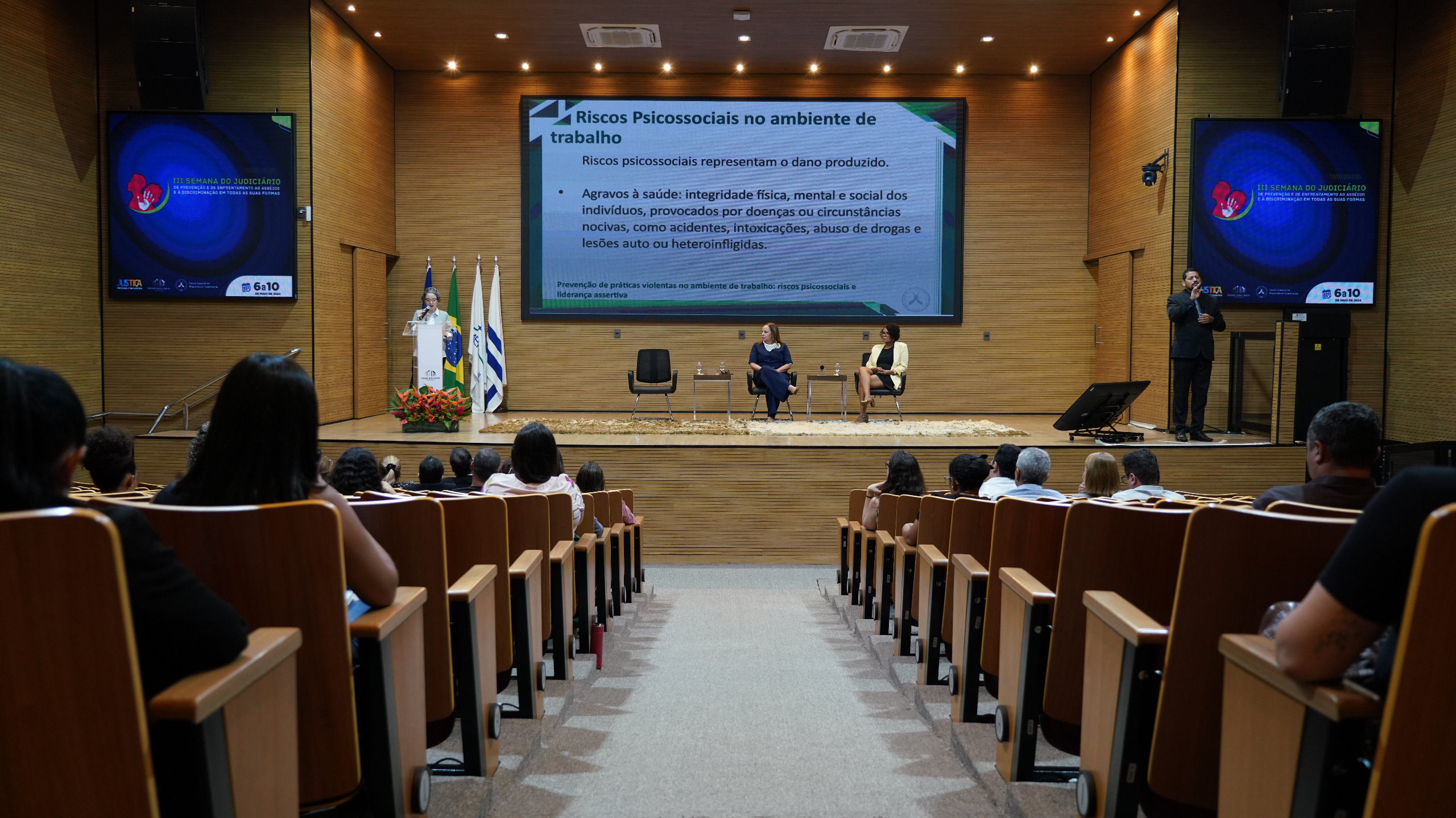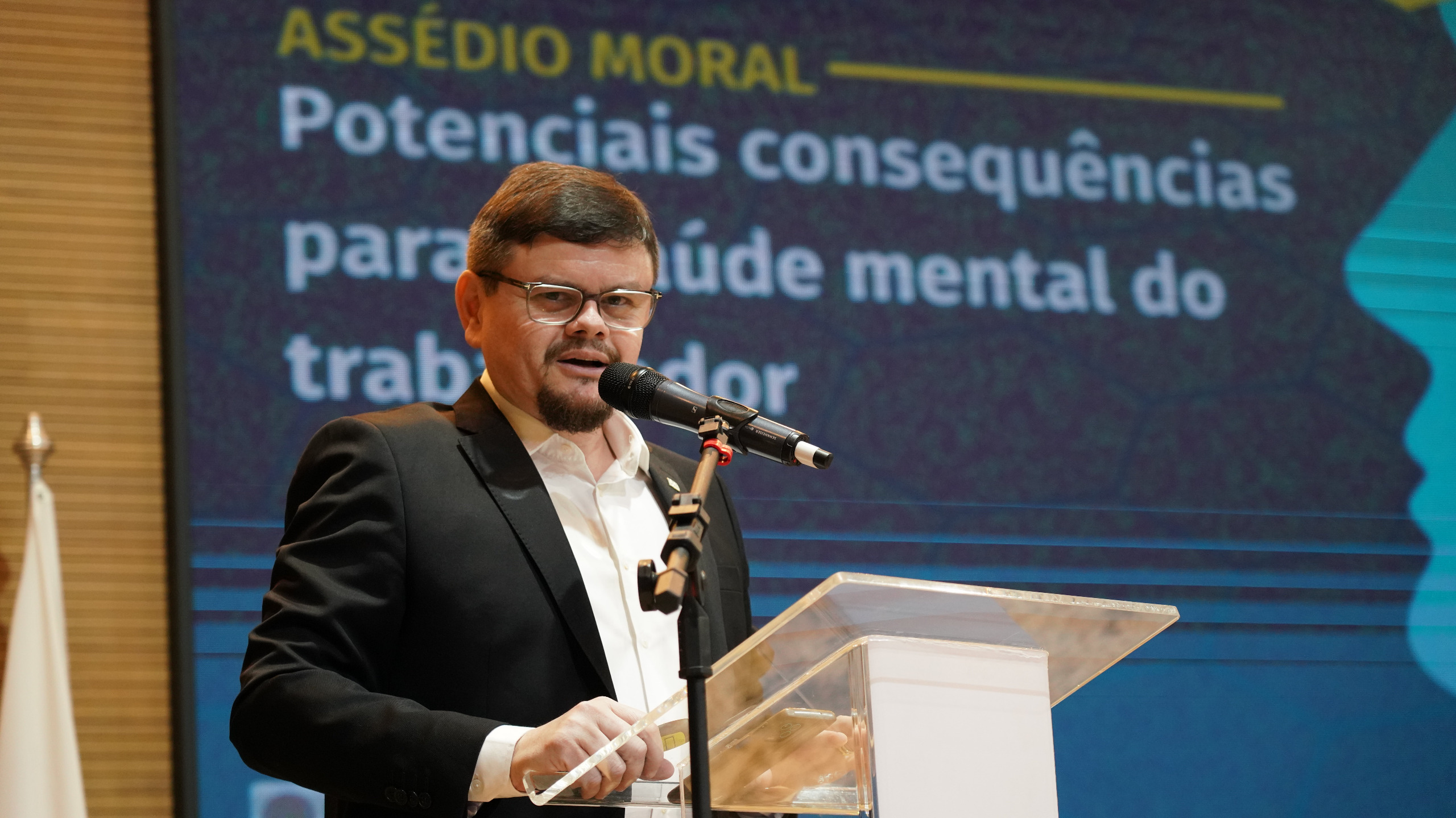
The activities of the second day of the III Judicial Week for Preventing and Combating Harassment and Discrimination in all its forms were held on Tuesday afternoon (May 7th), in the auditorium of the Court of Justice of the State of Tocantins (TJTO). Panel 1, with the theme on "Harassment and discrimination in the workplace: impacts on the mental health of the victim and the challenges for leadership", dealt with encouraging a culture of feedback, team training (technical and psychosocial development) and the development of health and safety policies aimed at workers.
At the opening, Justice Ângela Ribeiro Prudente, who coordinated the panel, congratulated the event on its success and highlighted the relevance of the topics covered.
In an analysis of psychosocial risks in the workplace, Lisieux de Araujo Rocha, PhD in psychology, emphasized the importance of developing socio-emotional skills to mitigate such risks and promote a healthier and more productive work environment.
"That's why it's so important to look at our psychosocial development, because the better we are at developing our socio-emotional skills, our ability to interact, to accept and receive criticism, which are directly linked to our professional performance, these risk factors will certainly be less prevalent in our lives," she said.
Daniela Negry, a civil server and member of the Commission for Preventing and Combating Harassment and Discrimination of the Judiciary of the State of Tocantins, took part in the talk as a mediator and added that it was important for everyone to get involved: "It's an important subject, I think we need to talk about it, and I want to make an invitation to those present and to take the invitation to those who are not present, to those who are listening to us through social networks, in virtual mode, don't miss the opportunity to debate this subject, especially harassment, discrimination, because we work in a very hierarchical structure, which has a very old culture. It's in these spaces and in these opportunities that we begin to understand what harassment really is."
The second lecture on the panel was on the theme of "the potential negative consequences of bullying for the mental health of workers". The speaker was Wordney Carvalho Camarço, a forensic psychiatrist and psychiatrist at the Psychosocial Reception and Monitoring Center - NAPsi, who captivated the audience with many examples from his clinical experience.

Wordney explained that to be characterized as moral harassment it is necessary to pay attention to a few details, such as systematic repetition, intentional degradation of the work environment, targeting a specific person, temporality during the working day and the occurrence of damage, understood as injury, violation or offense to non-pecuniary legal assets, such as reputation, honor, mental health and integrity.
Regarding assistance for civil servers, the speaker said: "You can contact us by telephone, e-mail or you can go to NAPsi and say that you need assistance and we will help you".
Telephone number of NAPsi is (63) 3901-9052 and for face-to-face assistance the address is: ANNEX I - Amaro Business Building, Block 103 North, NO-11 Street with NS 01 Avenue number 02.
In addition to the lectures, the programming included a special participation by the Observatory and Human Rights Clinic of the State of Tocantins, with the presentation of the manual on "I see you, talk to me!" by Dr. Christiane de Holanda Camilo (OCDHET-CHC). In her speech, she highlighted the way in which the manual was put together, based on public interaction, and questioned the way in which people look at life, work and, above all, power relations.

"What is the construction and idea of power? And to recognize it, even from where you are! Here [in the manual] we propose a different approach. The court recently talked about restorative justice, and restorative justice starts with building a new outlook, proposing the construction of a new outlook. So this change in outlook, in perspective, is necessary," said Christiane.
Click here and check out the complete programming.




